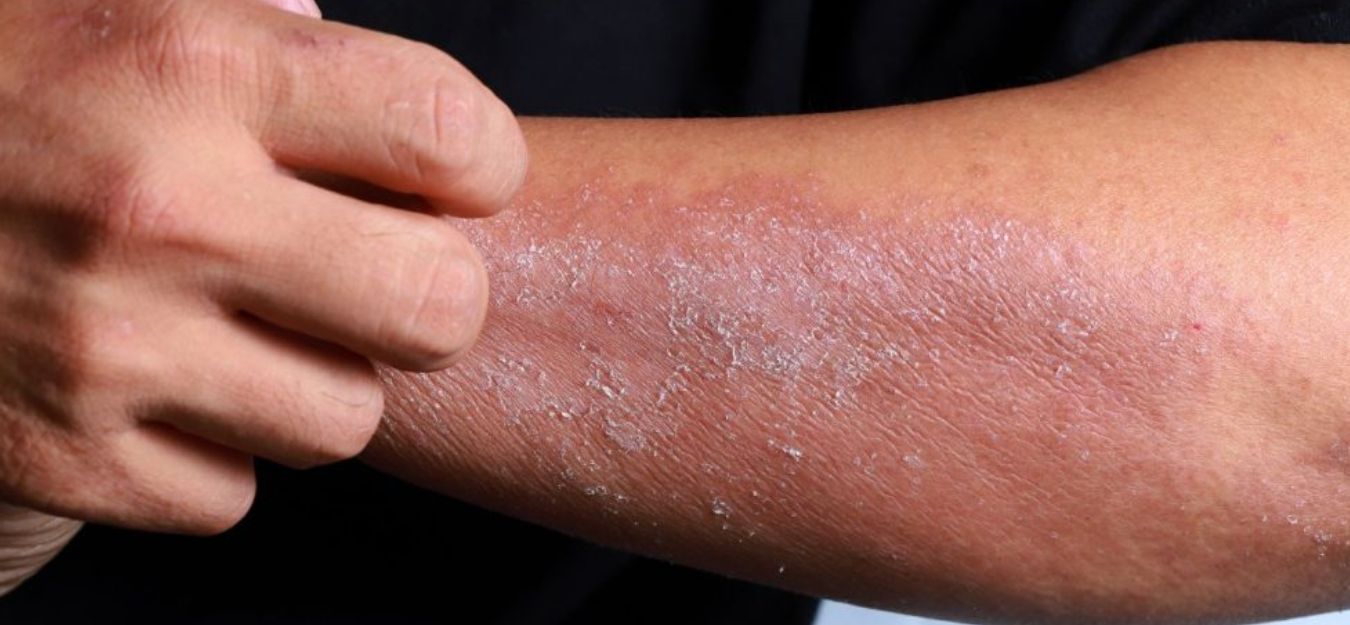Thyroid Troubles and Skin Symptoms
The people below made their statements about the correlation between hypothyroidism and eczema. Do you also happen to wonder about it?
"I’m wondering if there seems to be a link between an underactive thyroid gland and eczema since one of the big symptoms [of both conditions] is dry skin.” – Unsure Individual
“Anyone here who has eczema and some thyroid issues? I think that for me, these two are related.” – Very Curious Human
“I also think Hashimoto’s (underactive thyroid gland) may have something to do with my eczema flare-ups with stress because stress can also trigger episodes of symptom worsening with Hashimoto’s.” – Observant Person
But before we start digging into it, let us find out first what these two entities are.
What is Hypothyroidism?
Hypothyroidism is a medical condition in which the thyroid gland does not produce enough thyroid hormones to meet the body's needs. The thyroid gland (located in the neck) is responsible for producing hormones that regulate the body's metabolism, growth and development.
When the thyroid gland is underactive, it can result in a variety of symptoms such as fatigue, weight gain, cold intolerance, constipation, dry skin, hair loss and depression.
Several factors, including autoimmune diseases, radiation therapy, surgical removal of the thyroid gland and iodine deficiency can cause hypothyroidism.
Treatment for hypothyroidism typically involves hormone replacement therapy, which involves taking thyroid hormone supplements to replace the hormones that the thyroid gland is not producing adequately.
What is Eczema?
Eczema, also known as atopic dermatitis, is a common skin condition that causes inflammation and irritation of the skin. It is characterized by dry, itchy and scaly patches of skin that can become red, swollen and cracked. Eczema can occur anywhere on the body, but it is most commonly found on the hands, feet, face and neck.
The exact cause of eczema is not known, but it is believed to be a combination of genetic and environmental factors. People with eczema have a weakened skin barrier, which makes their skin more susceptible to irritation and inflammation. Common triggers of eczema include allergens, such as pollen, dust mites and pet dander, as well as irritants like soaps, detergents and certain fabrics.
Treatment for eczema typically involves a combination of self-care measures and medications. Self-care measures may include avoiding triggers, taking warm (not hot) baths, using mild soap and moisturizer and wearing soft, breathable clothing. Medications may include topical corticosteroids to reduce inflammation, antihistamines to relieve itching and immunomodulators to help control the immune system response.
How do Hypothyroidism and Eczema Relate?
The thyroid gland produces thyroid hormones, a substance that regulates or stimulates specific cells or tissues.
These thyroid hormones directly act on receptors found on the skin, and it also affects non-skin tissues, causing an indirect effect on the skin.
When these hormones are at a low level in the bloodstream, it causes an imbalance in the normal physiological systems happening in your body. And here are the changes that one may expect:
- Dry skin: Low levels of thyroid hormone can reduce the skin's ability to retain moisture, leading to dryness and flakiness.
- Itchy skin: Thyroid hormone imbalance can cause itchiness and skin irritation, which may be particularly noticeable in areas with thinner skin, such as the face and neck.
- Changes in skin texture: An underactive thyroid gland (hypothyroidism) can cause the skin to become thick and rough.
- Skin discoloration: Hypothyroidism can cause the skin to become pale or yellowish.
Get the Right Diagnosis for Your Condition
The skin can be thought of as a window into our overall health. External signals of imbalance often indicate underlying issues inside the body. As you may notice, the skin changes listed above for hypothyroidism are somewhat similar to that of eczema. The similarities make it more confusing to any individual and give you more reasons to be seen by experts.
In cases where an autoimmune condition causes thyroid disease, there may be additional skin symptoms present that indicate the presence of other autoimmune disorders. Hence, it is best to have a specialist doctor examine you to rule out other diseases and come up with the right diagnosis.

